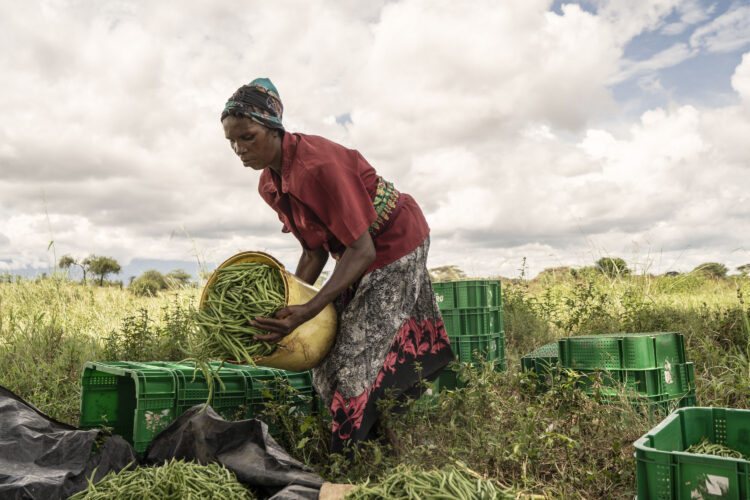In May 2023, the town of Thiès in Senegal was the venue for a regional workshop dedicated to the Observatoire des Exploitations Familiales (OEF) in West Africa. Organised by the Network of Farmers’ Organisations and Agricultural Producers of West Africa (ROPPA), the aim of the event was to strengthen the OEF, a strategic tool for family farm development in the region.
The workshop brought together around forty participants from various platforms and organizations, including ROPPA itself, the National Council for Rural Consultation and Cooperation (NCRC), the Federation of Non-Governmental Organizations in Senegal (FONGS), and technical partners such as Sos Faim, Rural Hub, Initiative Prospective Agricole et Rurale (IPAR), World Agricultures Watch (WAW), and CORAF.
The discussions primarily focused on enhancing the OEF, with a particular emphasis on valuing agricultural production and the expertise of family farmers. The objectives were multiple: to strengthen the methodology of the OEF, increase knowledge production from 2024 onwards, and establish a timeline for implementing the workshop’s recommendations.
The key results of this meeting included recognition of the importance of using the knowledge produced by the OEF, the orientation of the themes to be prioritised, the revitalisation of pooling practices to strengthen the capacity of the National Producer Platforms (NPFs) to produce knowledge, and improvements to the way the system works. Three strategic areas have been identified for the coming years: (i) producing farmers’ knowledge on changes in food systems, (ii) improving monitoring of the Agro Sylvo Pastoral and Fisheries (ASPH) campaign, and (iii) preparing the high-level conference on the dynamics and innovations of Family Farming (FF).
The workshop also provided an opportunity for in-depth collective reflection, which has created a new dynamic for the OEF. Concrete actions were identified to improve the quality and value of the knowledge produced by the OEF, to strengthen its methodology and operations, and to step up advocacy for family farming.
The meeting strengthened the cohesion between the participants and their commitment to work together for the success of the OEF. Commitments were made by the various players and a global timetable for the implementation of the workshop’s recommendations was drawn up. Fruitful exchanges with technical partners such as CORAF, IPAR and WAW/FAO affirmed their support for OEF and proposed ways of working together to strengthen its capacity to produce and use farmers’ knowledge.
Finally, major themes for knowledge production from 2024 onwards have been identified. These themes, which concern key issues for family farms in West Africa, will form the core of the OEF’s activities in the coming years.
This regional workshop was a success, strengthening the OEF, defining strategic orientations for its future development, and mobilising all stakeholders around these orientations. It marks a significant step forward in the consolidation of OEF as a key player in the promotion of family farming in West Africa.
In this regard, the contribution of YenKasa Africa could prove valuable. As a communication platform for rural development in Africa, YenKasa could help widely disseminate the knowledge generated by the OEF, strengthen the exchange of experiences between family farmers and foster cooperation between the various organisations and platforms involved.

